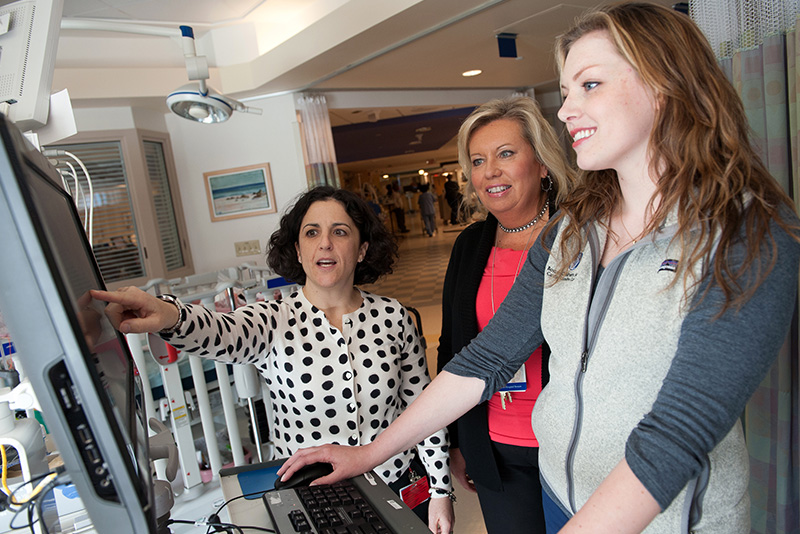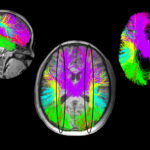Nurse scientists: Advancing pediatric care through research

Quality nursing care depends on ongoing clinical inquiry — that is, asking questions about current processes and developing the best solutions to those concerns. “The power of critical thinking strengthens nurses’ ability to be clinical experts and practice at the highest level,” says Jean Connor, PhD, RN, CPNP, FAAN, director of Nursing Research, Cardiovascular and Critical Care Services at Boston Children’s Hospital.
The infrastructure, processes, and resources in place Boston Children’s help empower nursing staff not only to ask questions, but also to answer them, resulting in a unique model for success. In particular, two programs at the hospital are helping support nurses as they drive such improvements.
Partnering for pediatric nursing advances
Boston Children’s Nursing Science Fellowship (NSF) pairs frontline nurses with nurse scientists to pursue research projects. Since its inception in 2011, the NSF has grown into a hospital-wide program with six PhD-prepared nurse science mentors, 79 enrolled fellows and 58 graduates. Each fellow teams up with a mentor to complete a project that advances the science of pediatric nursing and changes how nurses approach their daily work. Fellows share what they find locally, nationally and internationally.
For example, fellow Maeve Giangregorio, MSN, RN, CPN, clinical coordinator for the Cardiovascular Inpatient Unit, studied management of PICC lines in pediatric heart failure patients. Her findings were published in the Journal of Pediatric Nursing and changed hospital protocols for this population. Likewise, work by fellow Patricia Pratt, MA, BSN, CPQN, CPN, vice president and associate chief nurse of Pediatrics/Medical Nursing and Patient Care Operations, led to a new Children’s Hospital Early Warning Score (CHEWS) algorithm to assess patients at risk for cardiac arrest on all medical procedural units.
Fostering nursing innovation through mentorship
Boston Children’s Evidence-Based Practice (EBP) Mentorship Program, formed in 2016, is a self-directed immersion program that pairs nurses and patient care staff with EBP expert mentors to address important clinical practice questions. More than 70 have graduated from this interprofessional program, which welcomed its fifth cohort earlier this year.
Many graduates have made crucial discoveries through this program. For instance, Michelle Schuster, RN, in Hematology/Oncology found that hospital-led interventions can prevent PTSD in nurses, leading to the creation of the nurse-driven Hematology/Oncology/Stem Cell Transplant Resiliency Team. Eleni Moulis, DPT, PT, the program’s first interprofessional graduate, found that increasing the frequency of airway clearance treatments in cystic fibrosis patients, coupled with IV antibiotics, improves lung function. And Lauren Xenakis, BSN, RN, found that split-flow triage in the emergency department improves throughput. A pilot project is underway for specific emergency severity index patients.
Related Posts :
-

Parsing the promise of inosine for neurogenic bladder
Spinal cord damage — whether from traumatic injury or conditions such as spina bifida — can have a profound impact on bladder ...
-

“Observe. Be open.”: How Boston Children’s nurses are changing the future of global health
Ashley Birch, MSN, CPNP, a Boston Children’s pediatric nurse practitioner and Global Nursing fellow, didn’t expect a trash ...
-

Unveiling the hidden impact of moyamoya disease: Brain injury without symptoms
Moyamoya disease — a rare, progressive condition that narrows the brain’s blood vessels — leads to an increased risk of stroke ...
-

Forecasting the future for childhood cancer survivors
Children are much more likely to survive cancer today than 50 years ago. Unfortunately, as adults, many of them develop cardiovascular ...





